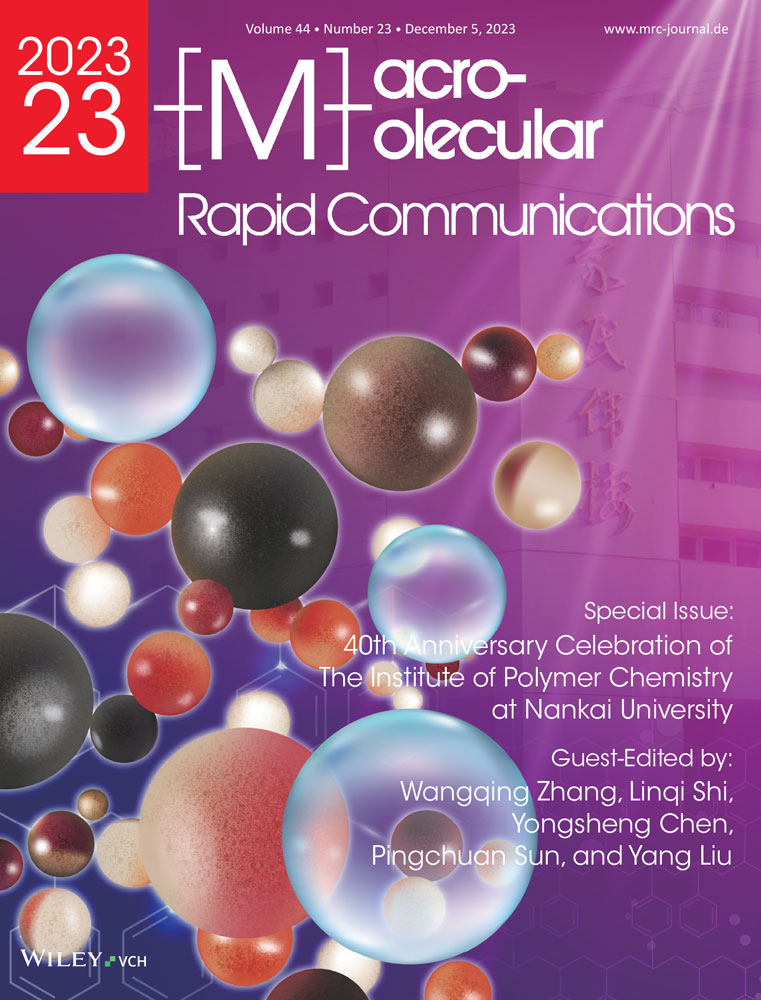40th Anniversary Celebration of The Institute of Polymer Chemistry at Nankai University
On the occasion of the 105th anniversary of the birth of academician Binglin He, known as the “father of ion exchange resin” of China, the Institute of Polymer Chemistry of Nankai University (NKU) celebrated its 40th birthday. This special issue is dedicated to celebrating the 40th Anniversary of the Institute of Polymer Chemistry of NKU, which covers the presentative advances in polymer research at NKU in recent years.
NKU, located in Tianjin, China, is a prestigious and comprehensive research university under the direct supervision of the Ministry of Education. The Institute of Polymer Chemistry of NKU was founded by Professor Binglin He in 1984, and its history traces back to the establishment of the teaching and research section of polymer science in 1958. In 1989, the polymer subject at NKU was evaluated as the national key subject. In 2004, the Key Laboratory of Functional Polymer Materials of the Ministry of Education was established based on the Institute of Polymer Chemistry. After 40-years’ development, it has become a well-established institute with master's and doctoral education, and postdoc programs in polymer chemistry. Currently, it has 62 faculty members, including 6 National Natural Science Foundation of China (NSFC) for Distinguished Young Scholars, and many other young talents.
At present, The Institute of Polymer Chemistry of NKU focuses on scientific issues such as polymer synthetic chemistry, polymer physics and the correlation between structure and properties in new functional polymer materials. It actively aligns itself with global trends and strategically links its research efforts to address significant national priorities in areas such as environmental conservation, healthcare, and emerging energy technologies. Now it focuses on four research directions: functional polymer materials for adsorption and separation, biomedical functional polymer materials, organic polymer materials for photoelectric conversion, and the relationship between structure and functions of polymer materials. The institute have actively engaged in international academic collaboration and established cooperation with domestic industries. To date, more than 1000 research papers have been published in high-impact journals. In the intellectual property, over 100 invention patents were granted. In recognition of the outstanding contributions, the institute has received more than 40 awards, including the Second and Third Prize of National Natural Science Award, and Provincial Natural Science and Technology Progress Awards. Currently, the Institute of Polymer Chemistry of NKU has developed into an important base in China for polymer science research, education, and the application of technological achievements. Over the past 40 years, it has trained over 1800 master's and doctoral students. The institute will continue to focus on cultivating polymer scientists and engineers, making them leaders in academia and industry.
We are honored to organize this special issue dedicated to the NKU's polymer program and highlighting its contributions to humanity. This special issue features 25 publications, encompassing research articles and reviews, which will cover a wide range of research areas in polymer science, including polymer synthetic chemistry, biomedical polymers, energy materials, and polymer physics. Finally, on behalf of the Institute of Polymer Chemistry of NKU, we extend our heartfelt appreciation to Dr. Bo Weng, the editor-in-chief of Macromolecular Rapid Communications, for providing us with this opportunity to show the latest advancements in polymer research. We are confident that this publication will provide a comprehensive overview of polymer research at NKU for international audiences. We sincerely hope that this will encourage more collaborations between NKU and institutions worldwide in the future.
Conflict of Interest
The authors declare no conflict of interest.
Citing Literature
Biographies

Wangqing Zhang received his Ph.D. degree in polymer chemistry and physics from Nankai University in 2004. Then, he joined Nankai University in 2004 as an associate professor and became a full professor in 2010. His current research interests include stimuli-responsive polymers, polymeric colloids and solid polymer electrolytes.
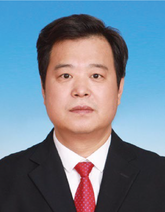
Linqi Shi received his Ph.D. degree from the Changchun Institute of Applied Chemistry, Chinese Academy of Sciences, China (1993). He is currently a full professor of the Institute of Polymer Chemistry, Nankai University, Tianjin, China. His research involves polymerization, self-assembly of block copolymers, and polymeric nanocarriers for biomedical applications.
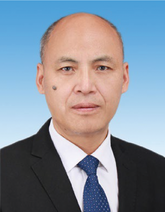
Yongsheng Chen graduated from the University of Victoria with a Ph.D. in chemistry in 1997 and then joined the University of Kentucky and the University of California at Los Angeles for postdoctoral studies from 1997 to 1999. From 2003, he has been a Chair Professor at Nankai University. His main research interests include: 1) carbon-based nanomaterials, including carbon nanotubes and graphene, 2) organic and polymeric functional materials, and 3) energy devices including organic photovoltaics and supercapacitors.
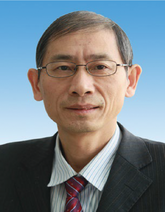
Pingchuan Sun is a full professor at Institute of Polymer Chemistry, Nankai University, China. He received his bachelor's degree and Ph.D. in condensed physics from Nankai University in 1986 and 1994, respectively. His current research interests include advanced polymer materials and development of advanced solid-state NMR methods for the study of multi-scale structure and dynamics of macromolecules and biomacromolecules.
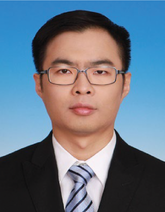
Yang Liu is currently a full professor at Institute of Polymer Chemistry, Nankai University, China. He received his bachelor's degree in 2006, and then his Ph.D. in polymer chemistry from Nankai University in 2011. In 2016, he earned his second Ph. D. in chemical engineering from University of California, Los Angeles, and then returned to China and joined Nankai University to start his research career. His research interests focus on biomedical polymer materials for gene delivery and cancer immunotherapy.



